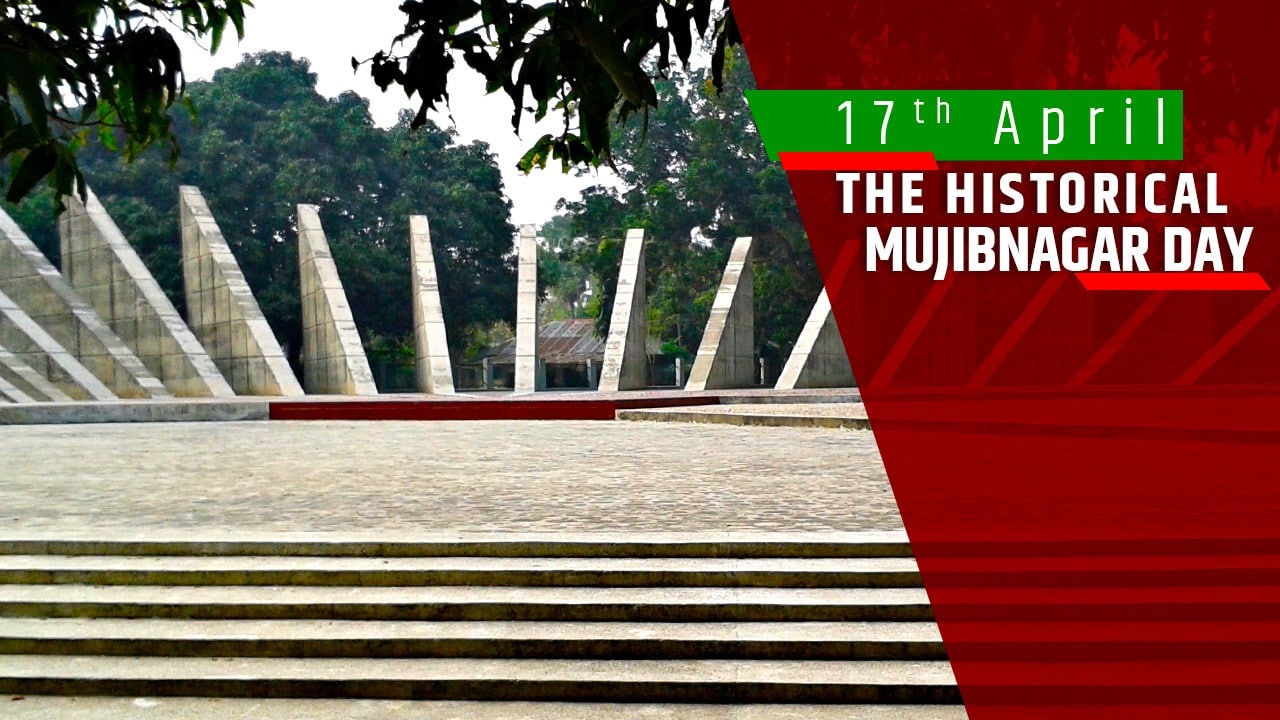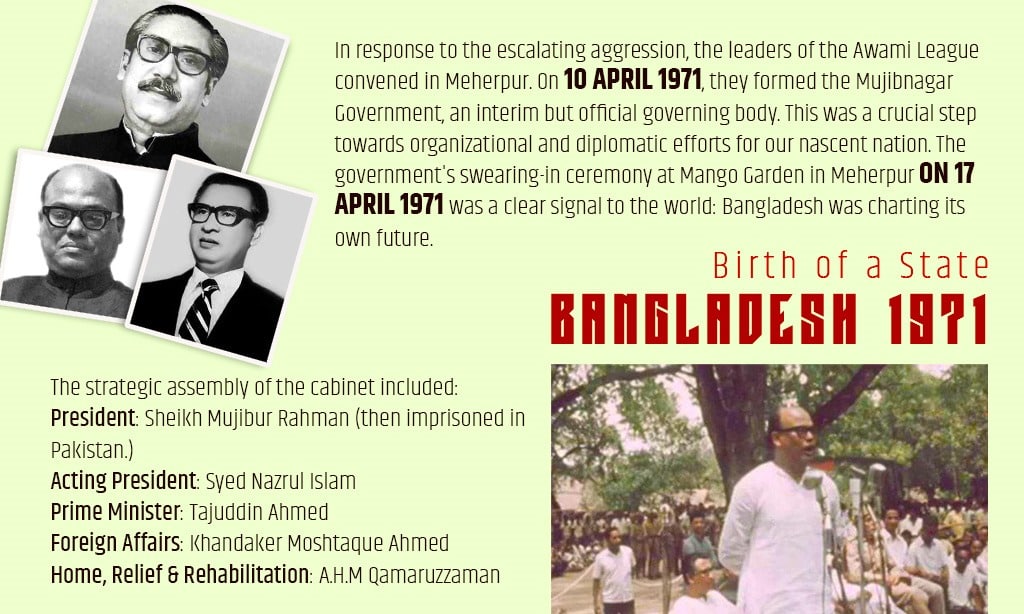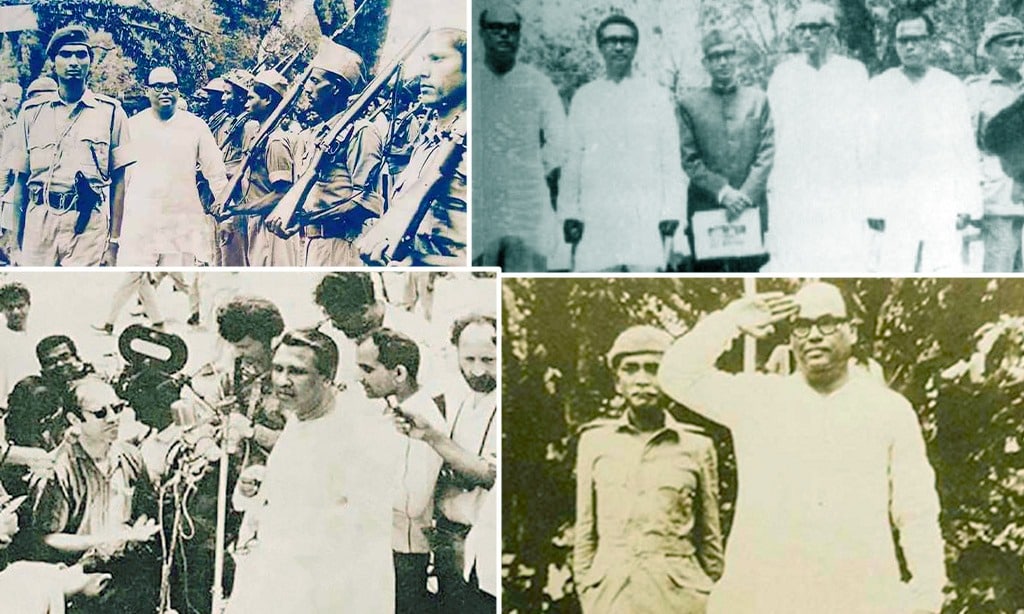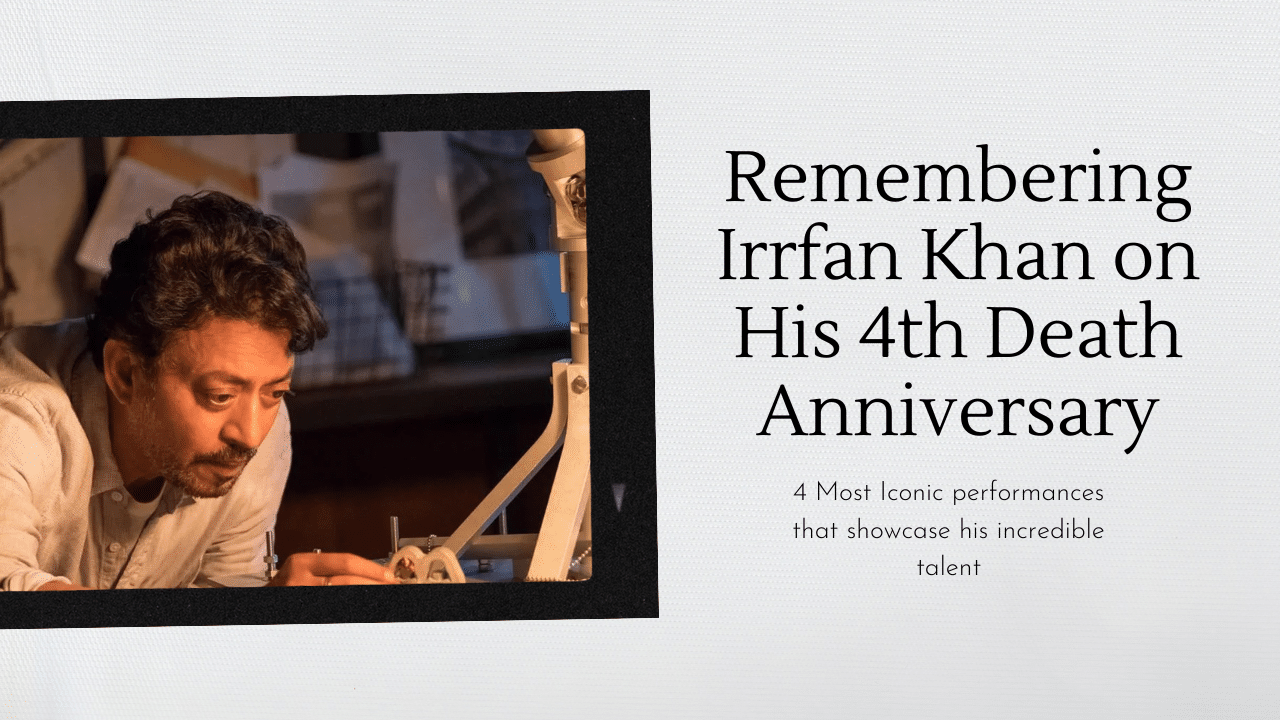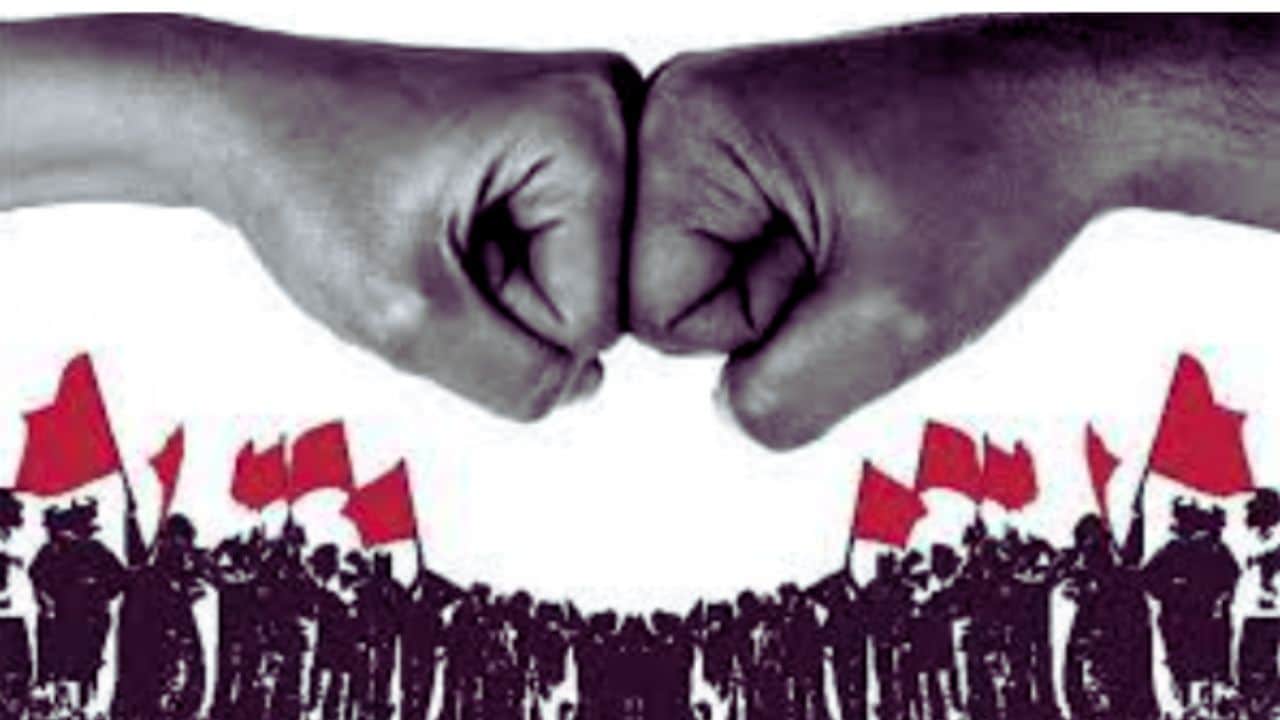Mujibnagar Day marks a pivotal moment in the march towards sovereignty—a day that commemorates the formation of the provisional government of Bangladesh on April 17, 1971. It was this government that orchestrated the diplomatic efforts crucial for our nation’s quest for independence. On this day, at Mujibnagar, the leaders of our struggle took oaths to uphold the fight for liberation and to represent a nation in chains, endeavoring to break free. Their actions laid the foundations of our statehood and garnered the international support needed to ensure that our call for freedom was heard across the globe.
We recognize how the Mujibnagar government, named after the Father of the Nation Bangabandhu Sheikh Mujibur Rahman, was not just a symbol but an operational authority that effectively mobilized diplomatic channels. Its members engaged with foreign nations to secure political, moral, and material support, which was instrumental in legitimizing our struggle on the world stage. This government’s endeavors also played a critical role in the eventual release of Bangabandhu from imprisonment in Pakistan during the war.
Our observance of Mujibnagar Day is more than an act of remembrance; it is an analytical reflection on the strategic diplomatic maneuvers that our foresightful leaders executed to shape the destiny of Bangladesh. The unwavering dedication and international vehemence they displayed provided the ampere for our War of Liberation, ultimately carving a path for us to emerge as an independent sovereign nation on December 16, 1971.
17th April: Historical Mujibnagar Day
As we look back at the pivotal moments that shaped the destiny of Bangladesh, it becomes imperative to discuss the establishment of the Mujibnagar Government. This was a testament to the indomitable spirit and the unequivocal determination of a nation yearning for sovereignty.
Background of the Bangladesh Liberation War
Years of cultural, economic, and political disparities between East Pakistan (now Bangladesh) and West Pakistan sparked our struggle for independence. The fervent plea for autonomy was expressed through the sweeping victory of the Awami League in the 1970 general elections in Pakistan. When the ruling authorities in West Pakistan denied our democratic right to form a government, it sparked the Liberation War in March 1971.
Formation of Mujibnagar Government at Meherpur in 1971
In response to the escalating aggression, the leaders of the Awami League convened in Meherpur. On 10th April 1971, they formed the Mujibnagar Government, an interim but official governing body. This was a crucial step towards organizational and diplomatic efforts for our nascent nation. The government’s swearing-in ceremony at Mango Garden in Baidyanath Tola (At present, Mujibnagar Upajila), Meherpur on April 17, 1971 was a clear signal to the world: Bangladesh was charting its own future.
Proclamation of Bangabandhu Sheikh Mujibur Rahman
Prior to the formation of the Mujibnagar Government, our Father of the Nation, Bangabandhu Sheikh Mujibur Rahman, made the declaration of independence on 26 March 1971. His unequivocal call galvanized the population into a unified force of resistance. The Mujibnagar Government later supported this proclamation, which strengthened our resolve to gain respect as a sovereign nation in the international community.
This intrepid journey towards independence was not without international ramifications; diplomatic endeavors in Kolkata and across the world played a significant role in our fight for recognition. The Mujibnagar Government’s formation remains a cornerstone in the history of Bangladesh’s liberation, exemplifying our commitment to freedom and democratic values.
Diplomatic Steps and International Support
In the wake of the crisis that led to Bangladesh’s independence, significant diplomatic steps were crucial in garnering international support. Let us examine the various facets of these efforts that cumulatively played a pivotal role.
Initial International Reactions to the Crisis
The first reactions from the international community to the crisis in East Pakistan were mixed. Initially, there was a hesitancy to intervene or take a strong stand due to the complex geopolitical situation and the initial lack of understanding regarding the magnitude of the human rights violations occurring. However, as reports of the atrocities began to surface, countries started to express concern, setting the stage for Bangladesh to appeal for global support.
Role of Indian Support and Intervention
India played a critical role in the events leading to the independence of Bangladesh. Officially, India provided shelter to millions of refugees fleeing the violence. On the diplomatic front, India’s stance gradually shifted towards open support for the Bengali cause, leading to diplomatic action in various international forums, such as the United Nations. This strategic alliance also included military intervention, which became a turning point in securing Bangladesh’s independence.
Engagement with Global Political Leadership
Efforts to engage with global leaders were a key diplomatic action. Representatives of the provisional government reached out to state leaders across the world to narrate the plight of Bengalis and the legitimacy of their quest for independence. These efforts aimed at rallying the United Nations and member states to recognize the gravity of the situation and to secure international support for Bangladesh.
Communicating the Bengali Cause to the World
To convey the legitimacy of their cause to the global community, the provisional government utilized various forms of communication. They conveyed a clear message of unity and the desire for self-determination, leveraging the support of people within and outside the country. By communicating effectively with the international community, they were able to generate empathy for their struggle and harness support from multiple quarters, including influential nations and global media.
Leadership and Decision Making
In the pivotal moments of a nation’s birth, the quality of its leadership is often determinant in securing its place on the world stage. This was especially true for the Mujibnagar Government, which orchestrated Bangladesh’s journey to independence with poise and tactical finesse.
Formation of Cabinet and Key Leadership Roles
On April 17, 1971, we witnessed the swearing-in of the Mujibnagar Government’s cabinet, a significant leap in our quest for self-governance. Syed Nazrul Islam—stepping in as the Acting President—led the provisional government due to the confinement of Bangabandhu Sheikh Mujibur Rahman. Accompanying him was Tajuddin Ahmed, serving as the Prime Minister, who was pivotal in the administrative organization and international diplomacy efforts.
The strategic assembly of the cabinet included:
- Acting President: Syed Nazrul Islam
- Prime Minister: Tajuddin Ahmed
- Finance Minister: Mansur Ali
- Foreign Affairs: Khandaker Moshtaque Ahmed (Ahmad was removed from the post after alleged connection with West Pakistan was discovered)
- Home, Relief & Rehabilitation: A.H.M Qamaruzzaman
- Head of the Planning Commission: Nurul Islam
- Commander-in-Chief of Bangladesh army: General M.A.G Osmani
- Chief of staff: Major General Abdur Rob
Strategic Command and Administrative Framework
Aligning with the vision of the Awami League Leaders, the Mujibnagar Government operated under a well-devised administrative framework. The main challenge was establishing a strategic command that could consolidate both the political leadership and the guerrilla warfare admirably executed by the Mukti Bahini.
The government ensured proper channels of communication between the leadership ranks and elected leaders in dispersed locations. Every decision was made in congruence to propel the political momentum while rallying international support for our legitimate struggle for freedom.
Inside Mujibnagar: The Seat of the Provisional Government
Mujibnagar, a symbol of resilience, played a crucial role as the administrative nexus of Bangladesh’s liberation struggle. It housed the Provisional Government that boldly orchestrated our nation’s fight for sovereignty.
Life in Mujibnagar During the Struggle
Mujibnagar was a bustling epicenter of political activity and courage during the liberation war. As the seat of the Provisional Government, it became the strategic headquarters from which our leaders coordinated the battle for independence. Despite the challenges, the spirit of hope and determination flourished among those who gathered there.
The Constituent Assembly, composed of elected representatives, worked tirelessly amidst the backdrop of war to ensure the administrative functionality and international legitimacy of our government in exile. Life in Mujibnagar was characterized by a mix of strategic planning, diplomatic parleys, and the rally of the Mukti Bahini, ensuring the struggle for freedom pressed forward.
Oath-Taking Ceremony at Baidyanathtala Mango Grove
In the serene setting of the Baidyanathtala Mango Grove, a historic event unfolded on April 17, 1971. It was here that the leaders of our Provisional Government took their oath to serve the country and guide it through the sea of turmoil towards independence. This pivotal ceremony solidified Mujibnagar’s place in history as the birthplace of Bangladesh’s fight for self-rule.
The venue, a Mango Grove, became an emblem of natural perseverance, mirroring our own steadfast journey. The raw emotions and solemn commitment encapsulated in the oath at Baidyanathtala reflected the unfaltering resolve to uphold the ideals that formed the bedrock of our impending nationhood.
Armed Struggle and Protection of Human Dignity
As we recall the Liberation War of 1971, our focus turns to the valiant efforts of Mukti Bahini and allied forces that championed human dignity. We see a defining chapter where protection of civilians became intertwined with the armed resistance.
Operations of Mukti Bahini and Allied Forces
Mukti Bahini, or the Freedom Fighters, constituted the backbone of our resistance against the Pakistani Military. The operations were multifaceted, involving both guerrilla tactics and conventional warfare. Here are the specifics of their efforts:
- Attacks on strategic points: The Mukti Bahini disrupted supply lines and communications of the Pakistani forces.
- Allied support: India, understanding our just struggle, provided sanctuary and training for our forces and later intervened militarily.
The Mukti Bahini and the allied forces displayed incredible coordination and resolve in articulating our desire for sovereignty. The operations went beyond mere fighting; they carried the embodiment of our fight for self-determination and the preservation of human dignity.
Defending the Civilian Population
Throughout the War of Liberation, the safety and dignity of civilians took priority. The resistance movements took specific measures to protect them from the atrocities of the war:
- Safe zones: Efforts were made to create safe zones for civilians fleeing the violence.
- Aid and Shelter: Provision of basic needs and shelter for displaced individuals.
Our commitment to defending our population solidified the moral high ground of our cause, further sealing the war not just as a struggle for territory, but a fight for the basic rights and dignities of our people. The Freedom Fighters’ courage and strategic operations stand as a testament to our quest to secure and protect human dignity amidst the atrocities of war.
Symbolism and the Legitimacy of a Nation
We examine the crucial role that symbols and legal structures played in the birth of Bangladesh in our effort to comprehend the foundations of its identity and sovereignty. These elements not only denote legitimacy but also capture the collective aspirations of a people striving for recognition.
Establishment of National Symbols
As we reflect on the birth of independent Bangladesh, our national symbols deeply resonate with the spirit of our struggle. The National Flag, for instance, is more than just a flag; it is a proclamation of our identity, steeped in the blood and sacrifices of our patriots. The flag, adopted officially during the formation of the Mujibnagar government on April 17, 1971, embodies the green of our land and the red sun, indicative of our rebirth. It crystallizes our past, present, and aspirations for a sovereign future.
The National Anthem, “Amar Shonar Bangla,” composed by our revered Rabindranath Tagore, was chosen as it reflects the collective soul of Bangladesh. Through its adoption, we pay homage to the cultural and historical legacy that predates our liberation, aligning with our identity as a sovereign people’s republic.
Legal and Constitutional Framework
The declaration of independence and the subsequent establishment of the Mujibnagar government marked our progress towards establishing constitutional legitimacy. This signified not just a secessionist hue but a decisive shift towards a legal and constitutional framework as the foundation of our nation. The government rapidly began work on establishing the legal basis for a Sovereign People’s Republic, doing so amid the turmoils posed by war and displacement.
The constitution of Bangladesh, drafted later, rooted our nationhood in the will of the “Father of the Nation,” Bangabandhu Sheikh Mujibur Rahman, and the principles he championed. The constitutional declaration further solidified the resolve of the Mujibnagar government to ensure a legitimate and independent Bangladesh — free from any foreign dominion and representative of our people’s sovereign will.
Challenges, Trials, and the Path to Recognition
We must explore the significant struggles faced by Bangladesh in the diplomatic arena and how they were intricately navigated. These struggles included psychological and media warfare that had to be addressed and international political hurdles to be overcome to attain global recognition.
Addressing Psychological and Media Warfare
In the aftermath of the secessionist movement, we faced a dire need to counteract psychological warfare. Our challenges were to ensure that the atrocities and genocide propagated by the Pakistani military were effectively communicated to the world. Journalists, both local and foreign, played a pivotal role in this. They acted as our voice, transmitting the harrowing realities through various modes of communication to garner international support.
- Objective: Counteract misinformation and highlight the struggle for independence
- Strategy:
- Provide firsthand accounts to journalists
- Engage in radio broadcasts to disseminate the truth internationally
Overcoming International Political Obstacles
Our path was further obfuscated by international political hurdles. Political leaders and diplomats worked tirelessly to secure recognition for the People’s Republic of Bangladesh from other nations. The incarceration of our leader, Bangabandhu Sheikh Mujibur Rahman, meant that we had to navigate the diplomatic landscape without our figurehead. However, through deliberations and advocating the legitimacy of our cause, we successfully paved the way to recognition.
- Objective: Gain international recognition for Bangladesh as a sovereign state
- Diplomatic Efforts:
- Direct negotiations with foreign leaders and governments
- Participation in international forums to articulate our nation’s stance
Through these combined efforts in addressing psychological and media warfare and overcoming political obstacles, we, the people of Bangladesh, directed the tide toward securing our rightful place as an independent nation in the global community.
Foundations Laid for Future Governance
As we explore the historical significance of Mujibnagar Day, it is imperative to understand the cornerstones that were essential for the future state of Bangladesh. These foundations not only created a blueprint for governance but also manifested the ideals that the nation sought to uphold.
Principles of the Future State of Bangladesh
In the spirit of Bangabandhu’s declaration of independence, we were introducing to the world a nation that was committed to the principles of democracy, nationalism, socialism, and secularism. These values formed the bedrock upon which Bangladesh desired to build a state that upholds universal human rights and delivers justice for its people.
- Democratic and Progressive Principles: The commitment to a democracy that would be inclusive and representative of peoples’ aspirations.
- Nationalism: Fostering a sense of pride and unity among citizens while recognizing the cultural diversity within.
- Socialism: Seeking economic justice and opportunities for all, aiming to bridge societal imbalances.
- Secularism: Ensuring freedom of religion and protecting the rights of all faiths under the national umbrella.
Setting Precedents for Democratic Governance
The Mujibnagar government, formed on this historic day, set important precedents for democratic governance. Its leadership, including prominent figures like Justice Abu Sayeed Chowdhury, who would later serve as the country’s president, was pivotal in establishing norms of governance based on popular will and the rule of law.
- Role of Leadership: Leaders’ role in streamlining governance to reflect the democratic ethos and dedication to human rights.
- Institutional Framework: Outlining the structures that would become the pillars for Bangladesh’s governance model.
Through these foundational elements, the Mujibnagar government not only symbolized the resilient spirit of Bangladesh but also laid down the guiding principles for a future nation yearning for recognition and autonomy.


